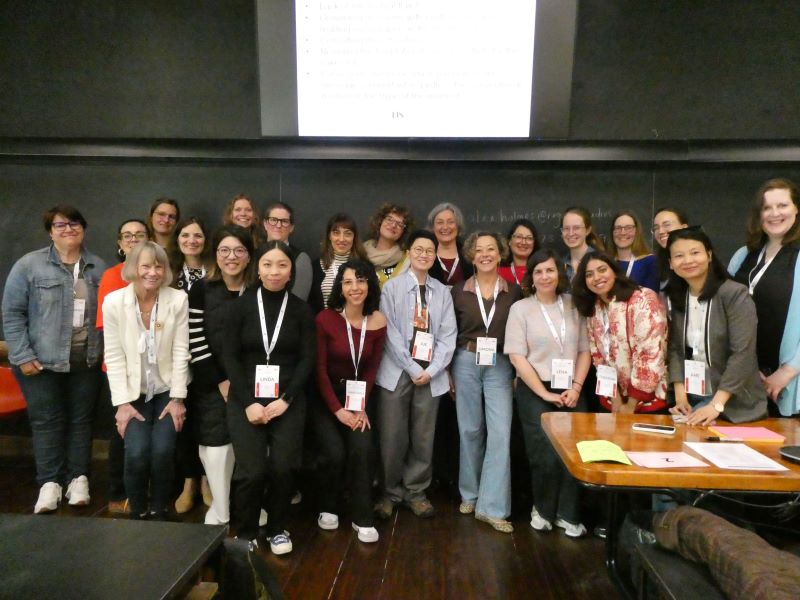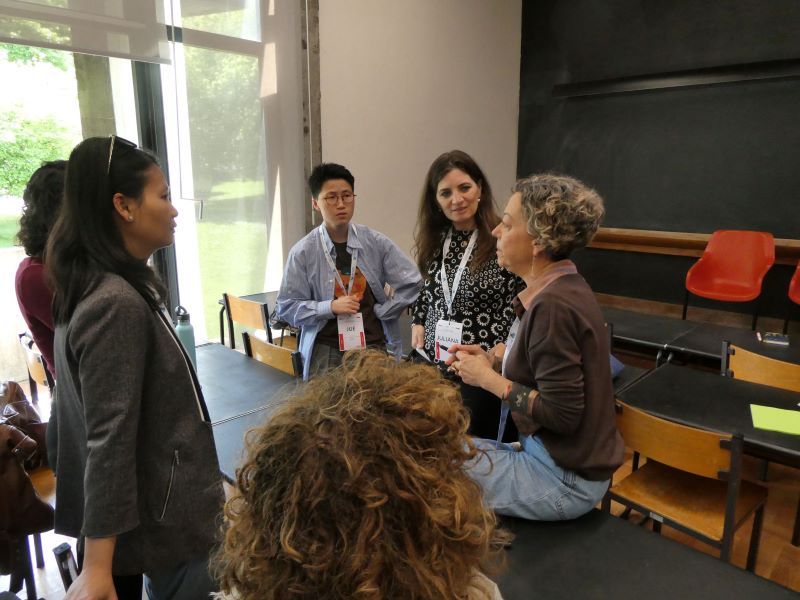The Regional Studies Association (RSA) Annual Conference 2025, held in Porto from May 6 to 9, brought together nearly 900 scholars, marking the largest gathering in RSA history. The event showcased diverse, cutting-edge research that is shaping the future of regional development, innovation systems, spatial justice, and policy governance.
Among the many contributors, researchers affiliated with the Centre for Innovation Management Research (CIMR) made significant thematic interventions across key areas within the field. Their work, while rooted in institutional contexts, contributed deeply to core debates within regional studies, including the evolving role of universities, spatial dimensions of innovation, regional inequality, and inclusive research governance.
Role of Universities in Regional Innovation and Sustainability
Universities emerged as central actors in regional economic development and sustainable transitions discussions. Presentations from CIMR scholars addressed both conceptual and practical dimensions:
- Fumi Kitagawa (City-REDI, University of Birmingham) presented on universities as anchor infrastructures in urban transitions, specifically focusing on how they support the net-zero agenda through urban energy systems. Her work contributed to a special session on Transformative Universities and Regional Sustainable Development.
- Åsa Lindholm Dahlstrand (Birkbeck Visiting Professor) co-authored a paper which reviewed the role of universities in peripheral regions, presented in a session focused on this theme. The presentation outlined a literature review on a future research agenda, contributing to debates on regional higher education institutions.
- In a collaborative presentation, Bill O’Gorman (SETU), Helen Lawton Smith, and Richard Hayes examined how HEI missions and graduate labour markets influence regional economic development, linking educational outcomes to spatial policy outcomes.
These contributions underscore how regional studies scholarship is increasingly concerned with not just where universities are located, but how they function as spatially embedded institutions.
Regional Innovation Systems and Spatial Inequality
Another critical stream focused on the internal dynamics and consequences of regional innovation systems (RIS):
- Thanos Fragkandreas (University of Westminster) presented a study on how RIS can contribute to regional inequality using the case study of Braunschweig in Germany.
- Emma Palmer Foster, a CIMR PhD student, gave her Understanding of Heterogenous Bioscience Park Stakeholders and its Influence on Regional Innovation Systems in a session on Agglomeration, Networks and Clusters.
These studies contribute to an urgent line of inquiry within regional studies: how innovation is not inherently inclusive, and how the architecture of RIS can reproduce or reduce regional disparities.
Policy Instruments and Governance for Inclusive Regional Growth
Bringing in governance and mission-oriented frameworks, scholars explored how policy tools shape regional outcomes:
- Elvira Uyarra (University of Manchester) delivered multiple contributions:
- On the spatial footprint of public procurement and its implications for mission-led policies,
- And in special sessions on the Present Priorities, the future of regional studies and policy relevance.
This research illuminates how public sector mechanisms, such as procurement, can be leveraged to achieve place-based policy goals.
Equity, Gender, and Representation in Regional Studies
Issues of gender equity and academic inclusion were central to several sessions:
- Simona Iammarino (University of Cagliari & LSE) addressed the intersection of gender, geography, and scholarly publishing in a session on social inequalities (Read the paper here). She also joined the RSA Women’s Network panel to discuss academic publishing and pathways for women in the field.
The RSA Women’s Network traces its roots to the EU-funded TRIGGER Project (2014–2017), led by Helen Lawton Smith, which laid the groundwork for more inclusive academic structures within regional studies. One pivotal milestone came in 2017, during an event titled “Gender Inequality in Academic Community Bodies: Causes and Possible Solutions”. At this session, Sally Hardy, then RSA CEO, reflected on the lack of gender parity in academic decision-making and explained how the discussion motivated her to raise these concerns with the RSA’s gatekeeping committees (watch here).
Building on this momentum, the RSA Women’s Network, started by Franziska Sielker, formally launched its first in-person event in 2018 and has since continued to grow through both virtual and face-to-face forums. Today, the current organiser, Carolin Ioramashvili, encourages events for open dialogue on key issues affecting women in the field and fosters cross-border, cross-career-stage connections among researchers.
In 2018–2019, Helen Lawton Smith was appointed as the first Chair of the RSA Gender & Equalities Committee and joined the RSA Board, reinforcing CIMR’s and RSA’s shared commitment to gender equity and inclusive research environments.
To learn more, see the RSA’s feature on International Women’s Day and previous events of the RSA Women’s Network.


Looking Ahead: Emerging Trends and the Next Generations of Regional Studies
The Centre for Innovation Management Research (CIMR), in collaboration with the Regional Studies Association (RSA) and the University of Westminster, is looking ahead to the 2025 Student & Early Career Conference, scheduled for 9–10 September 2025. Designed for postgraduate students and early career researchers (ECRs), the conference offers a supportive space to present research, receive expert feedback, and build valuable academic and professional networks.
This initiative continues CIMR and RSA’s joint commitment to fostering inclusive, interdisciplinary dialogue in the field of regional studies. As part of this trajectory, we are also gearing up for the 2025 RSA Regional Futures Conference, where forward-looking themes in regional innovation, governance, and development will take centre stage.
For full details and application instructions for the early career event, visit the official announcement here.
Connect with the Author

Helen Lawton Smith, FAcSS, FRSA, SFHEA, is Professor of Entrepreneurship, School of Business, Birkbeck, University of London. She is the Director of the Centre for Innovation Management Research. Her research career has focused on the links between entrepreneurship, innovation, public policy and regional development in national and international contexts. Her research focuses on innovation in emerging technologies and on geographies of support for minority innovative entrepreneurship.